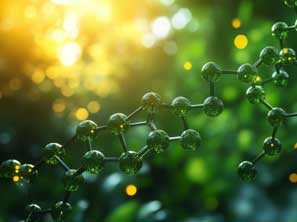Green tie-ups: Dow/Gruppo Fiori develop recycling process for PU auto waste; Arkema/Catalyxx to transition bio-based acrylic resins

US materials firm Dow, in partnership with Gruppo Fiori, have jointly developed a process that enables recovery of polyurethane (PU) waste from end-of-life vehicles (ELVs) without disassembly. The process combines Dow’s expertise in materials science and Gruppo Fiori’s automotive recycling system.
Valued for comfort, safety, and fuel-efficiency, PU foam is an essential part of automotive interiors. A typical car contains about 28 kg of PU, 10 to 15 kg of which is in seats, an amount representing a potentially significant sustainability impact. Traditional recycling of vehicles, however, requires disassembly of automotive components, creating cost and complexity for recyclers.
Dow and Gruppo Fiori’s innovation eliminates this step, producing a simplified recovery for the PU waste stream with the purity needed to enable depolymerisation (chemical recycling).
The collaboration works toward a circular automotive supply chain by: obtaining a PU waste stream suitable for depolymerisation from ELVs without disassembly; keeping PU foam out of landfills; enabling industrial-scale recycling and reuse of PU in mobility applications; creating polyol with recycled content; and helping enable compliance with upcoming mandatory recycled content requirements from ELV regulation, as well as OEMs’ sustainability goals.
This program with Gruppo Fiori can enable Dow’s Renuva portfolio of recycled materials, which exists to accelerate the transformation of waste streams into new raw materials through mechanical and chemical recycling.
This milestone builds on the 2024 memorandum of understanding (MoU) between Dow and Gruppo Fiori to create a new ecosystem for recycling ELV parts and materials. The companies’ partnership analysed dismantling processes, assessed the purity and recyclability of recovered materials and are piloting innovative business models through an accelerated “test-and-learn” approach. These latest technical breakthroughs signify significant progress in a short timeframe to provide positive momentum for future industrial implementation.

In other news, speciality chemicals firm Arkema and bio-based chemicals supplier Catalyxx have entered into a partnership to develop a new value chain for low-carbon, bio-based acrylic resins by leveraging breakthrough proprietary technology.
Catalyxx is planning to build a first-of-its-kind industrial facility to produce bio-alcohols, including bio n-butanol, from bioethanol. These bio-alcohols, based on a patented technology validated at a demonstration plant in Seville, Spain, offer a significantly lower carbon footprint compared to fossil-based alternatives.
Arkema is evaluating the use of these bio-alcohols as feedstocks for the commercial-scale production of bio-based acrylic resins with lower carbon footprint. These resins will serve high-performance applications in coatings, adhesives for new energy solutions, e-mobility, living comfort, and sustainable infrastructure markets.
This project is a major milestone for Catalyxx, and we value the trust and shared vision we’ve built with Arkema over the past few years. This new step reinforces our common interest in advancing sustainable materials and supports the continued development of our first commercial plant,” said Joaquin Alarcon, CEO of Catalyxx.
Subscribe to Get the Latest Updates from IMA Please click here
©2025 Injection Moulding Asia. All rights reserved.











